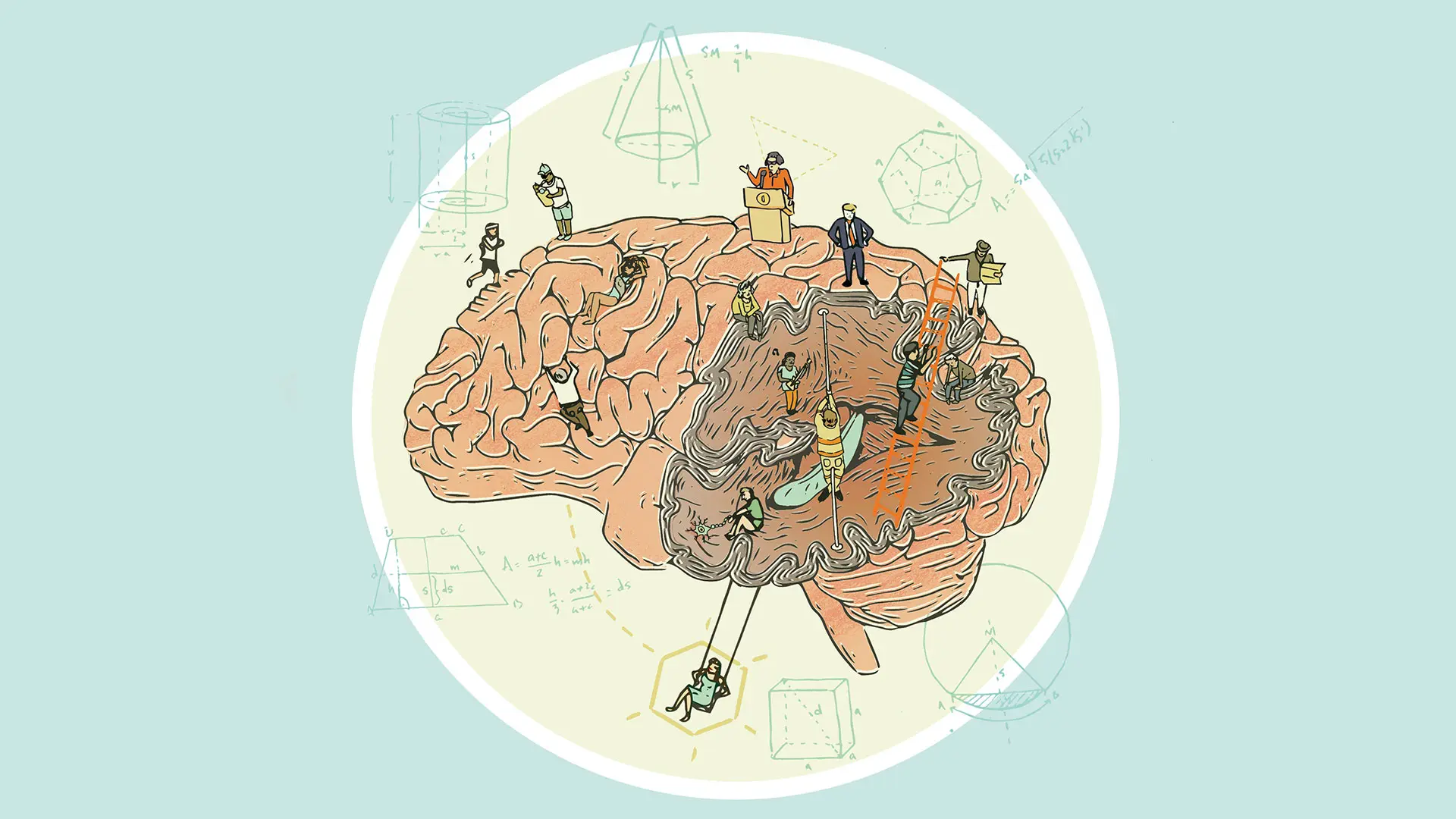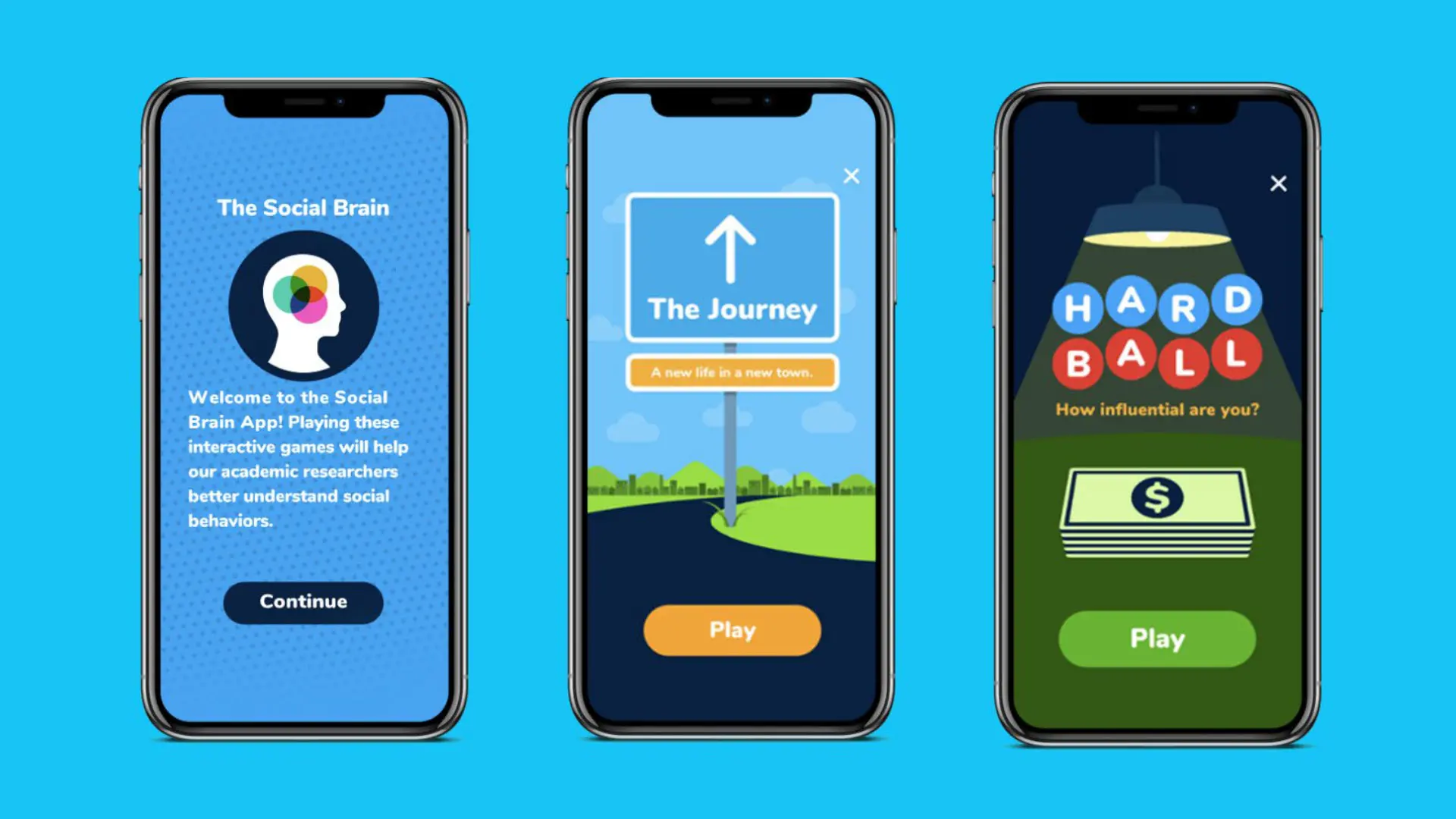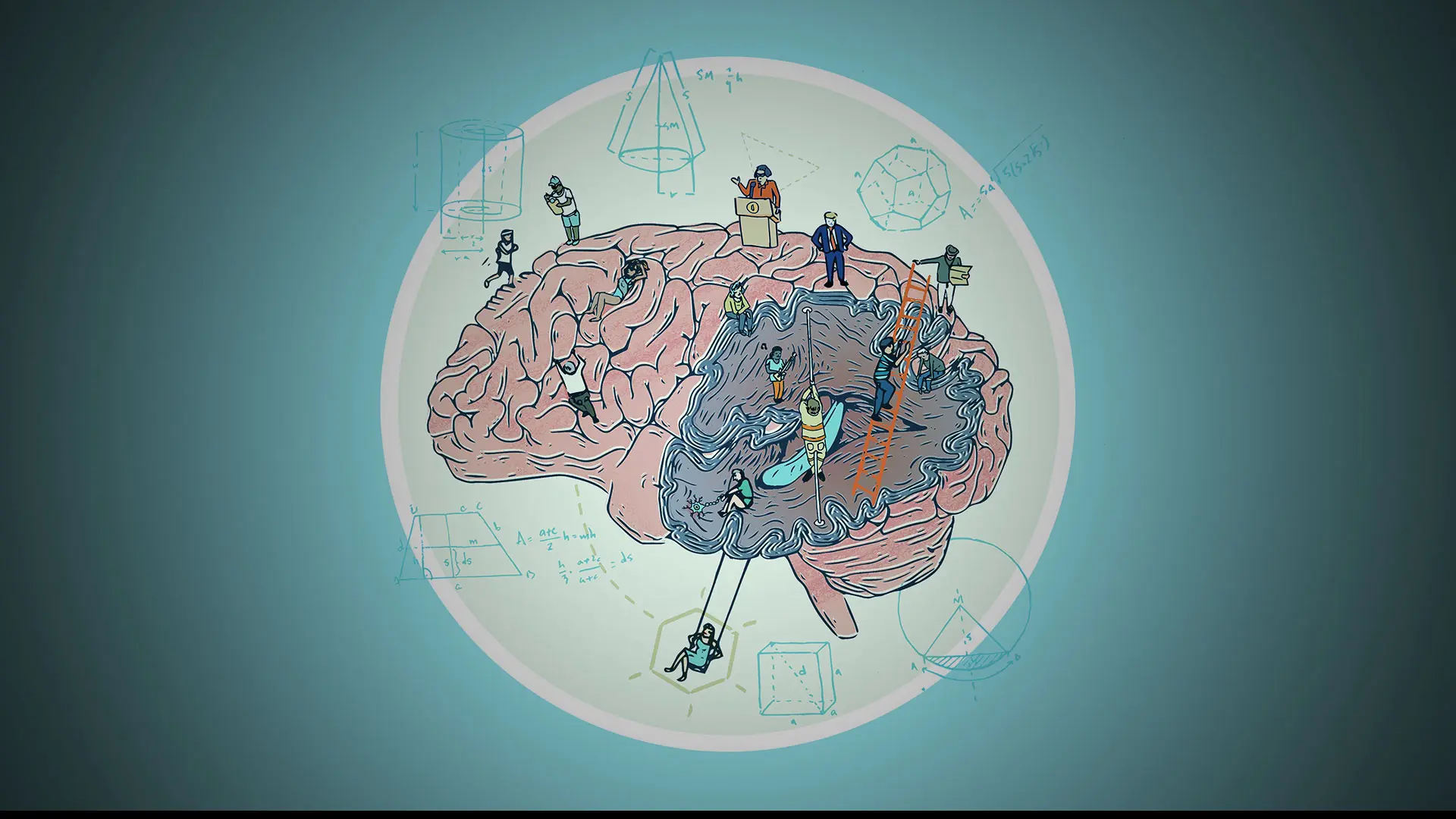The team's work has shown that the human hippocampus—a brain region involved in spatial navigation and memory across species—actively computes a geometric representation of social relationships during social interactions. Dr. Schiller is Professor of Psychiatry, and Neuroscience at the Icahn School of Medicine at Mount Sinai.
Strikingly, recent work found that, during social interactions, the hippocampus represents people with whom we interact as locations within a two-dimensional space. Linking this result to mental health, participants who reported better social skills had better hippocampal tracking of these geometric social representations.
These results demonstrate that the concept of social space is akin to physical space. Spatial descriptions of social situations, such as “climbing up the social ladder” or having a “tight social circle,” are perhaps more than metaphors and may indicate the specific positioning of others using geometric computations. Much like we know where we are in physical space, the neural representation of social space has an important role, too—for psychological well-being.

Figure: The review article by Schiller et al., Memory and Space: Towards an Understanding of the Cognitive Map. J Neurosci 35:13904-13911 (2015) (DOI: https://doi.org/10.1523/JNEUROSCI.2618-15.2015), suggests that the hippocampus has a fundamental role in representing memories within a multidimensional cognitive map, such as illustrated in this image by Taylor Williams.
How Do Humans Exert Influence During Social Interactions?
A line of research led by Xiaosi Gu, PhD, Associate Professor of Psychiatry, and Neuroscience, and Founding Director of the Center for Computational Psychiatry at Mount Sinai, has focused on the question of social controllability: how do humans exert influence during social interactions?
We know that humans generally prefer having control, and a sense of control relates to better mental health outcomes, such as higher subjective well-being and less negative affect. However, we did not know how the brain encodes controllability during social interactions.
The team developed a social exchange game where participants’ choices either did or did not influence partners' future proposals. Using this method, they discovered a neural mechanism that implements forward thinking—calculating downstream consequences of current action—to exploit social controllability.
Daniela Schiller, PhD, left, and Xiaosi Gu, PhD, discuss how they are using The Social Brain App they developed to study how social interactions correlate with mental health.
The Study of Social Processes Across Multiple Clinical Populations: New Research Approaches
Social deficits are observed in almost all major psychiatric disorders. A major undertaking at the Department of Psychiatry at Mount Sinai is dedicated to the study of social processes across multiple clinical populations. To highlight a few studies:
A team led by Adriana Feder, MD, Professor of Psychiatry, and Mercedes Perez, MD, PhD, Associate Professor of Psychiatry, examines social behavior in post-traumatic stress disorder, particularly in survivors of the 9/11 attacks in New York City.

Adriana Feder, MD, left, and Mercedes Perez, MD, PhD
Rita Z. Goldstein, PhD, Professor of Psychiatry, and Neuroscience, and Nelly Alia-Klein, PhD, Associate Professor of Psychiatry, and Neuroscience, use natural language processing and brain imaging tools to investigate social processes in heroin and cocaine addiction and other disorders of self-control.

Rita Z. Goldstein, PhD, left, and Nelly Alia-Klein, PhD
Keren Bachi, PhD, Assistant Professor of Psychiatry, and Environmental Medicine and Public Health, is characterizing the link between social deficits, childhood trauma, and addiction; Harold Koenigsberg, MD, Professor of Psychiatry and Director of the Mood and Personality Disorders Program at Mount Sinai, studies social and emotional processes in borderline and other personality disorders, examining cognitive mechanisms for emotion regulation and their neural correlates; and Jennifer Foss-Feig, PhD, Assistant Professor of Psychiatry, is tracking the developmental trajectory of social deficits from childhood to adulthood in autism.
Finally, we are excited about our recent launch of The Social Brain App. This new app (see image below) gives users the opportunity to be a part of novel social neuroscience experiments. Mount Sinai researchers have developed multiple games and surveys to get a glimpse into how we make social decisions in our everyday lives.

The Social Brain App was developed by our researchers.
By playing the games and answering questions within the app, you become a part of a massive online study that will allow us to take a whole new approach to the way we conduct research on social behavior. To be part of this exciting effort, please download the app via the Apple App Store or Google Play.
Featured

Keren Bachi, PhD
Assistant Professor of Psychiatry, and Environmental Medicine and Public Health, Icahn School of Medicine at Mount Sinai

Harold Koenigsberg, MD
Professor of Psychiatry, Icahn School of Medicine at Mount Sinai, and Director of the Mood and Personality Disorders Program

Jennifer Foss-Feig, PhD
Assistant Professor of Psychiatry, Icahn School of Medicine at Mount Sinai
